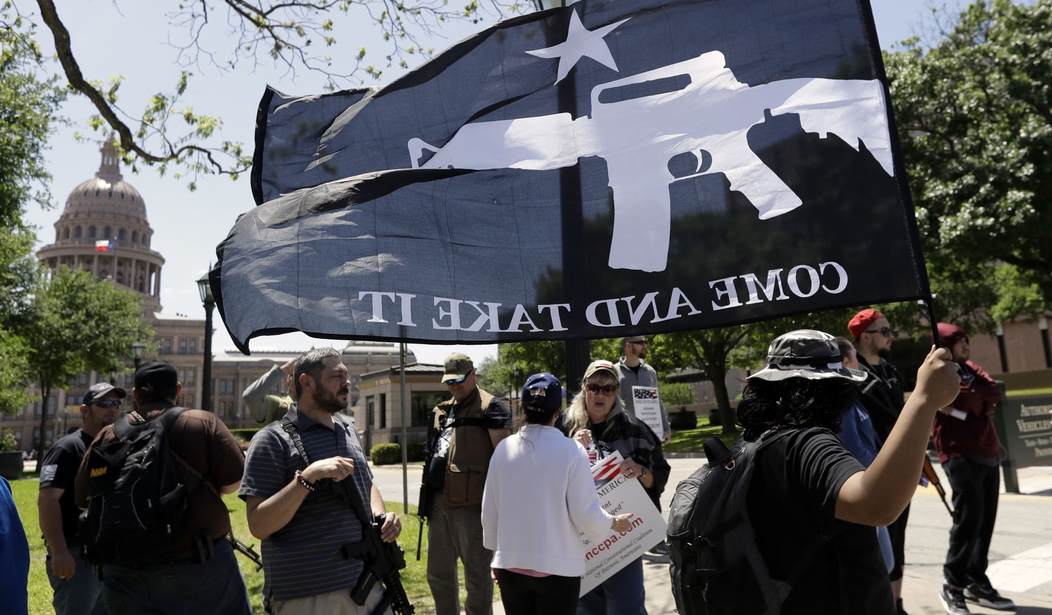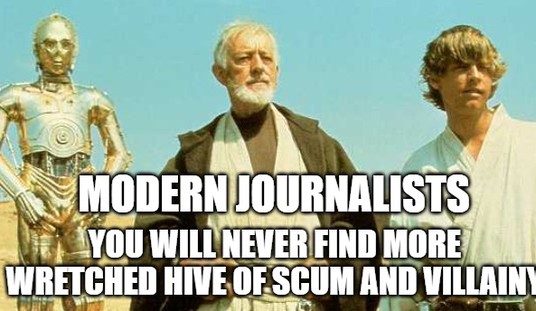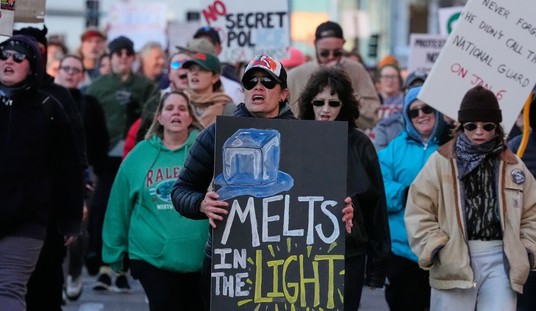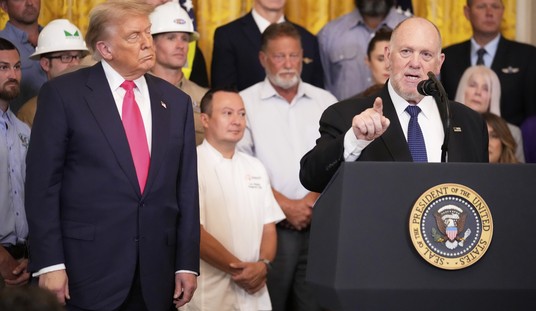Today we (collectively) are talking a lot about the Second Amendment, and Governor Grisham’s pretty explicit violation of it. I mean, she even said her oath to uphold the Constitution is not absolute:
New Mexico Governor Grisham:
— End Wokeness (@EndWokeness) September 9, 2023
The government has “additional powers” to suspend any part of the Constitution in the name of a health emergency
Now she’s invoking that power to eliminate 2nd Amendment rights
This is a test run. You have been warned.
pic.twitter.com/3p9IM7UUPM
I just wrote about a legal challenge to that order but I will take a moment to dive deeper and to highlight an overlooked problem in this discussion:
This is not a law. This is an executive order.
Our system is supposed to be one of separation of powers. Generally speaking, the executive branch is not supposed to act without the consent of the legislative branch. The founders did not want one person—even if he or she is popularly elected—to have that much power. It is bad enough that they infringing on our Second Amendment, but to do it this way is an extra step in the direction of dictatorship.
Now, there are plenty of historical arguments to be made in favor of protecting the Second Amendment and there is nothing wrong with them. For me, the most basic argument is this. The people who wrote the Second Amendment were the pretty much same people who rebelled in 1776 and they didn’t stop believing in the natural right of rebellion by 1791. To slay a few common counter-arguments, this didn’t mean they automatically supported all rebellions (Washington, for instance, worked to suppress the Whiskey Rebellion) and this didn’t mean that people had a legal right of rebellion. I don’t think the founders made rebellion legal, but with the First and Second Amendments, the founders gave us the next best thing. They protected the right to argue that the current regime is illegitimate, to print pamphlets to make that argument, to peacefully assemble on a certain date and time, and for that assembly to be armed… Basically all the rights you need to raise and ready an army to fight against the government—and then the moment it becomes an actual rebellion, it becomes illegal and the government can suppress it.
There are other historical arguments but I want to focus on what legal academics call ‘the policy argument.’ That is the argument basically that it is not only the law, but a really good idea. It’s not only an argument that the Constitution has a right to keep and bear arms, but it should have one. And whatever place it might have in a court of law, it is wholly valid in the court of public opinion as a reason not only to honor the Constitution as written, but not to repeal this amendment.
And the best policy argument I have ever read was found in an opinion by Judge Kozinksi in Silveira v. Lockyer, 328 F. 3d 567 (9th Cir., 2003). It was technically a dissent on a narrow procedural question. I could explain the procedural question to you but it really doesn’t matter so I won’t bore you with it. And, of course, it is a dissent, because it involves gun rights, it was the Ninth Circuit and this was in that time before District of Columbia v. Heller, 554 U.S. 570 (2008), when the Ninth Circuit (and some other courts) falsely believed they had the go-ahead to render the Second Amendment a nullity.
And Kozinski, a son of holocaust survivors (you’ll see why it is relevant in a minute), called the court to the carpet. And I think it is worth reading the whole thing. I will even leave in the citations:
Judges know very well how to read the Constitution broadly when they are sympathetic to the right being asserted. We have held, without much ado, that ‘speech, or ... the press’ also means the Internet, see Reno v. ACLU, 521 U.S. 844, 117 S.Ct. 2329, 138 L.Ed.2d 874 (1997), and that ‘persons, houses, papers, and effects’ also means public telephone booths, see Katz v. United States, 389 U.S. 347, 88 S.Ct. 507, 19 L.Ed.2d 576 (1967). When a particular right comports especially well with our notions of good social policy, we build magnificent legal edifices on elliptical constitutional phrases — or even the white spaces between lines of constitutional text. See, e.g., Compassion in Dying v. Washington, 79 F.3d 790 (9th Cir.1996) (en banc), rev'd sub nom. Washington v. Glucksberg, 521 U.S. 702, 117 S.Ct. 2258, 138 L.Ed.2d 772 (1997). But, as the panel amply demonstrates, when we're none too keen on a particular constitutional guarantee, we can be equally ingenious in burying language that is incontrovertibly there.
It is wrong to use some constitutional provisions as springboards for major social change while treating others like senile relatives to be cooped up in a nursing home until they quit annoying us. As guardians of the Constitution, we must be consistent in interpreting its provisions. If we adopt a jurisprudence sympathetic to individual rights, we must give broad compass to all constitutional provisions that protect individuals from tyranny. If we take a more statist approach, we must give all such provisions narrow scope. Expanding some to gargantuan proportions while discarding others like a crumpled gum wrapper is not faithfully applying the Constitution; it's using our power as federal judges to constitutionalize our personal preferences.
The able judges of the panel majority are usually very sympathetic to individual rights, but they have succumbed to the temptation to pick and choose. Had they brought the same generous approach to the Second Amendment that they routinely bring to the First, Fourth and selected portions of the Fifth, they would have had no trouble finding an individual right to bear arms. Indeed, to conclude otherwise, they had to ignore binding precedent. United States v. Miller, 307 U.S. 174, 59 S.Ct. 816, 83 L.Ed. 1206 (1939), did not hold that the defendants lacked standing to raise a Second Amendment defense, even though the government argued the collective rights theory in its brief. See Kleinfeld Dissent at 586-587; see also Brannon P. Denning & Glenn H. Reynolds, Telling Miller's Tale: A Reply to David Yassky, 65 Law & Contemp. Probs. 113, 117-18 (2002). The Supreme Court reached the Second Amendment claim and rejected it on the merits after finding no evidence that Miller's weapon — a sawed-off shotgun — was reasonably susceptible to militia use. See Miller, 307 U.S. at 178, 59 S.Ct. 816. We are bound not only by the outcome of Miller but also by its rationale. If Miller's claim was dead on arrival because it was raised by a person rather than a state, why would the Court have bothered discussing whether a sawed-off shotgun was suitable for militia use? The panel majority not only ignores Miller's test; it renders most of the opinion wholly superfluous. As an inferior court, we may not tell the Supreme Court it was out to lunch when it last visited a constitutional provision.
The majority falls prey to the delusion — popular in some circles — that ordinary people are too careless and stupid to own guns, and we would be far better off leaving all weapons in the hands of professionals on the government payroll. But the simple truth — born of experience — is that tyranny thrives best where government need not fear the wrath of an armed people. Our own sorry history bears this out: Disarmament was the tool of choice for subjugating both slaves and free blacks in the South. In Florida, patrols searched blacks' homes for weapons, confiscated those found and punished their owners without judicial process. See Robert J. Cottrol & Raymond T. Diamond, The Second Amendment: Toward an Afro-Americanist Reconsideration, 80 Geo. L.J. 309, 338 (1991). In the North, by contrast, blacks exercised their right to bear arms to defend against racial mob violence. Id. at 341-42. As Chief Justice Taney well appreciated, the institution of slavery required a class of people who lacked the means to resist. See Dred Scott v. Sandford, 60 U.S. (19 How.) 393, 417, 15 L.Ed. 691 (1857) (finding black citizenship unthinkable because it would give blacks the right to ‘keep and carry arms wherever they went’). A revolt by Nat Turner and a few dozen other armed blacks could be put down without much difficulty; one by four million armed blacks would have meant big trouble.
All too many of the other great tragedies of history — Stalin's atrocities, the killing fields of Cambodia, the Holocaust, to name but a few — were perpetrated by armed troops against unarmed populations. Many could well have been avoided or mitigated, had the perpetrators known their intended victims were equipped with a rifle and twenty bullets apiece, as the Militia Act required here. See Kleinfeld Dissent at 578-579. If a few hundred Jewish fighters in the Warsaw Ghetto could hold off the Wehrmacht for almost a month with only a handful of weapons, six million Jews armed with rifles could not so easily have been herded into cattle cars.
My excellent colleagues have forgotten these bitter lessons of history. The prospect of tyranny may not grab the headlines the way vivid stories of gun crime routinely do. But few saw the Third Reich coming until it was too late. The Second Amendment is a doomsday provision, one designed for those exceptionally rare circumstances where all other rights have failed — where the government refuses to stand for reelection and silences those who protest; where courts have lost the courage to oppose, or can find no one to enforce their decrees. However improbable these contingencies may seem today, facing them unprepared is a mistake a free people get to make only once.
Fortunately, the Framers were wise enough to entrench the right of the people to keep and bear arms within our constitutional structure. The purpose and importance of that right was still fresh in their minds, and they spelled it out clearly so it would not be forgotten. Despite the panel's mighty struggle to erase these words, they remain, and the people themselves can read what they say plainly enough:
A well regulated Militia, being necessary to the security of a free State, the right of the people to keep and bear Arms, shall not be infringed.
The sheer ponderousness of the panel's opinion — the mountain of verbiage it must deploy to explain away these fourteen short words of constitutional text — refutes its thesis far more convincingly than anything I might say. The panel's labored effort to smother the Second Amendment by sheer body weight has all the grace of a sumo wrestler trying to kill a rattlesnake by sitting on it — and is just as likely to succeed.
Like I said, it’s not a historical argument. Not a word of that opinion had any bearing on the interpretation of the Second Amendment. The history of events that happened long after 1791 is not typically relevant to the interpretation of a constitutional amendment ratified that year.
But, as an explanation for why the Second Amendment is needed now, it is brilliant. And its attack on the hypocrisy of judges interpreting the Second Amendment narrowly, while giving the amendments they like an expansive interpretation is chef’s kiss.
And although it was a dissent, it is one of those times where the dissent ages better than the majority. He wanted the entire court to overturn a decision by a panel of three judges of that court. That panel decision is no longer good law. His dissent survives at least as a piece of persuasive authority. It is more respectable in court to quote that dissent than the opinion it was railing against.
Nothing would frighten our founders more than a single person claiming the power of the legislature onto him or herself, saying they are not absolutely bound by their oath of office, and deciding that he or she had a right to abridge the second amendment. She is acting like every bit the tyrant that Kosinski, and Washington, Madison, and so on,were warning us about.
One can only hope the courts will follow the Constitution and stop this. And the sooner the better.

























